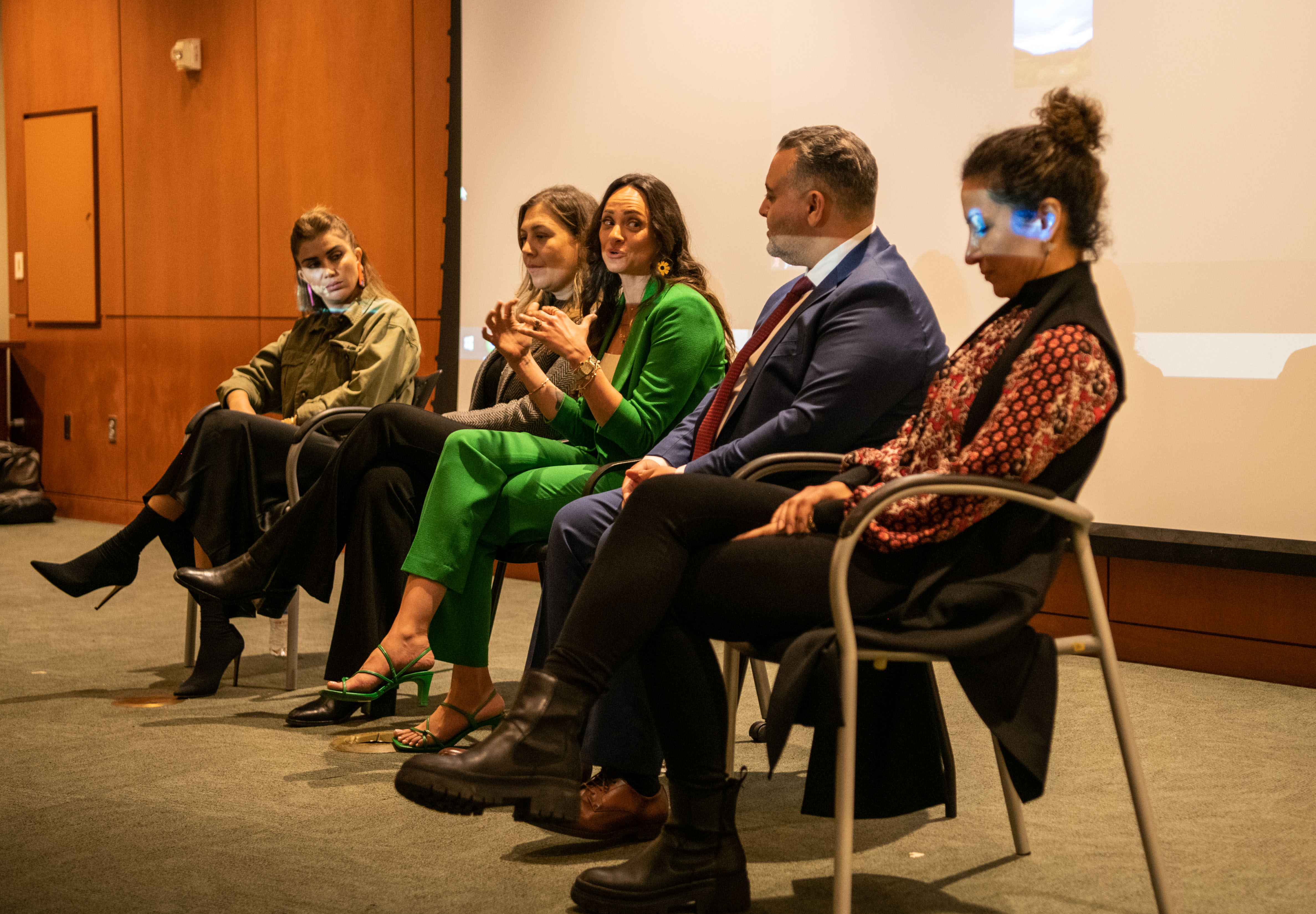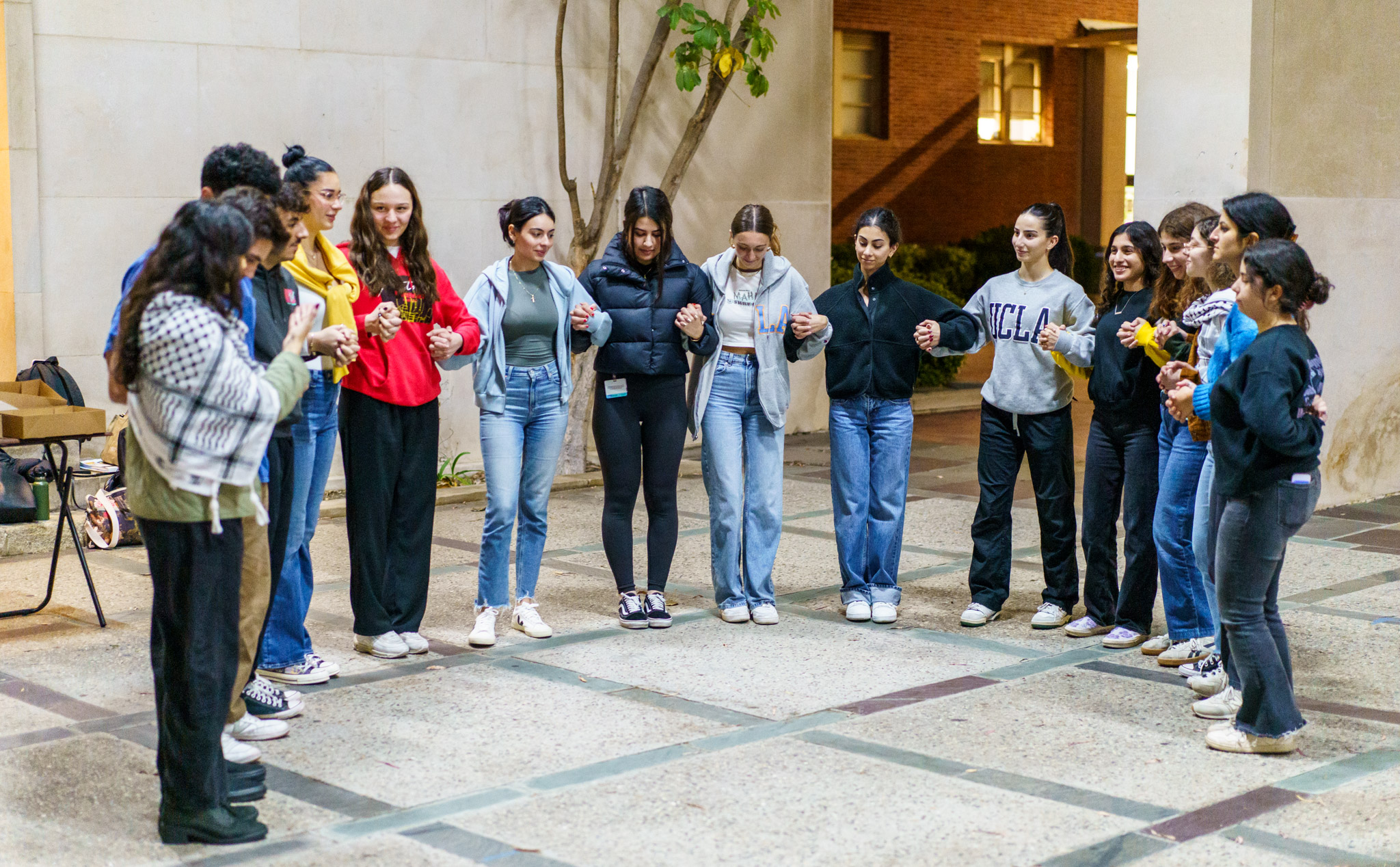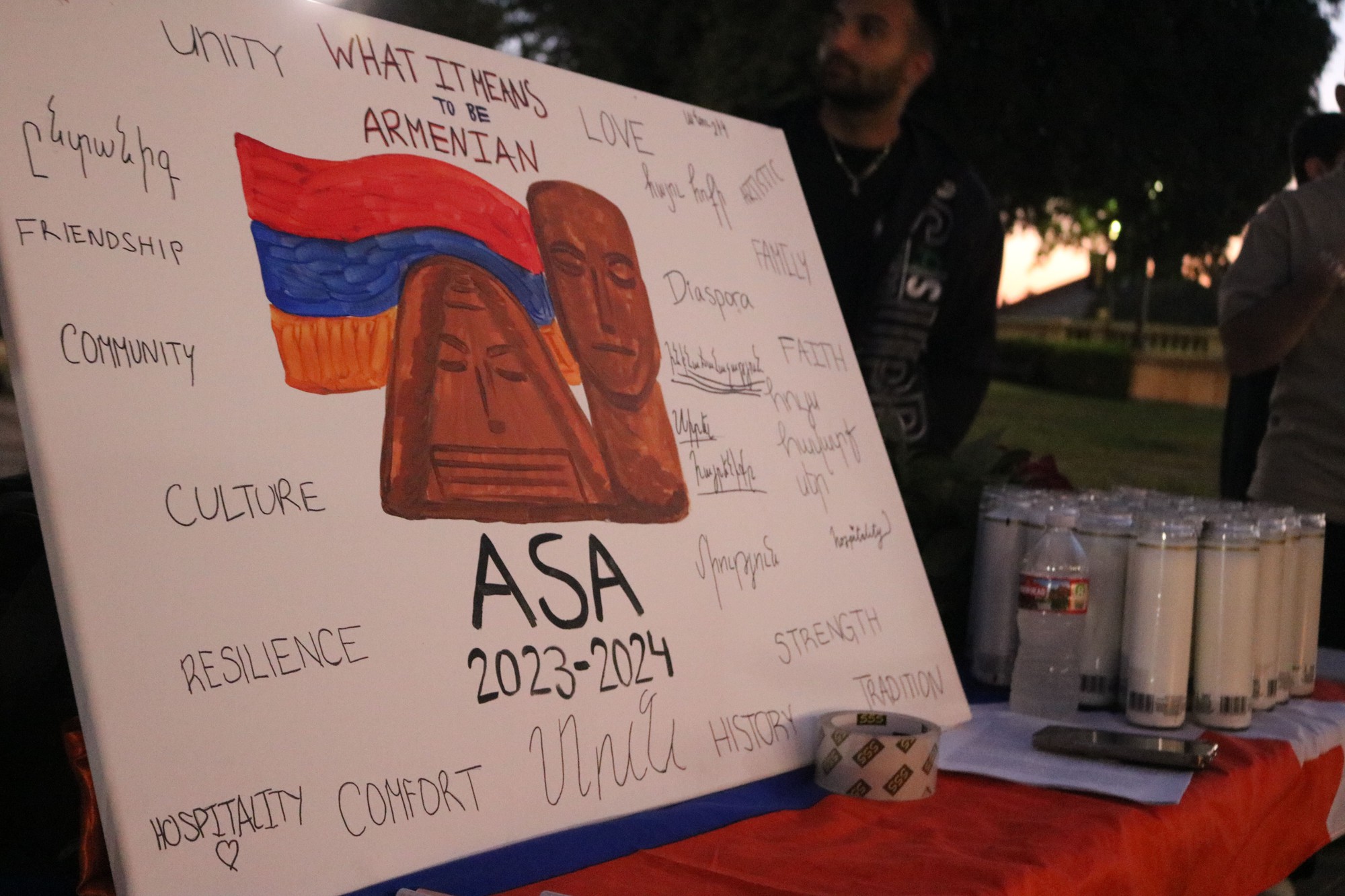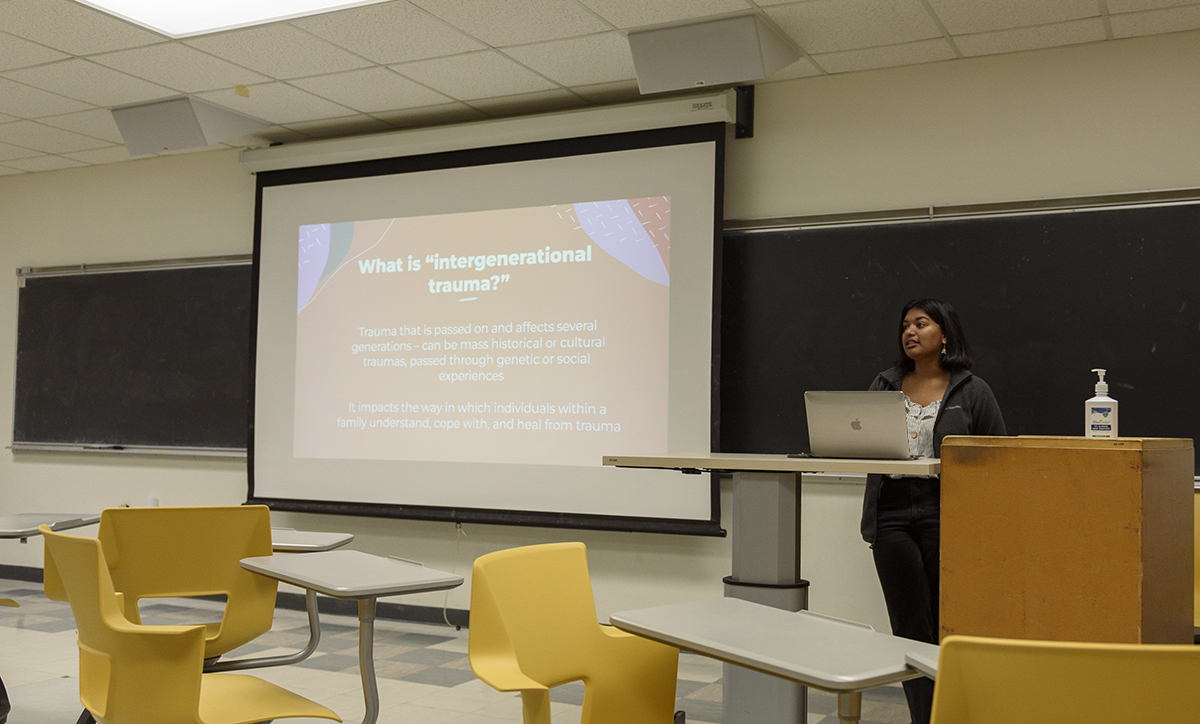Panelists discuss mental health amid conflict in Nagorno-Karabakh, Iran

Members of a panel to discuss the impact of recent international events in Artsakh and Iran are pictured. The panel – hosted by two cultural sororities – took place April 18. (Nicolas Greamo/Daily Bruin senior staff)
By Christopher Mancini
April 25, 2024 7:13 p.m.
Armenian and Iranian sororities hosted a panel to discuss the impacts of military conflict in Nagorno-Karabakh and government crackdowns in Iran on the mental health of UCLA community members.
The panel – hosted by Armenian sorority Alpha Gamma Alpha and Persian sorority Sigma Pi Sigma Psi on April 18 – included clinical psychologists, psychiatry residents and gender studies lecturer Esha Momeni, who collectively discussed how diasporic communities can be affected by international conflict. Audience members had the opportunity to ask questions and raise money for Frontline Therapists at UCLA, an organization that works to connect ex-combatants and civilians impacted by the wars in Armenia to mental health resources.
Azerbaijani military forces launched an offensive into the internationally unrecognized Republic of Artsakh in September, leading to the emigration of more than 80% of the region’s population, according to the Associated Press. During the same month, Iranian women commemorating the one-year anniversary of the death of Mahsa Amini – who was arrested for disobeying a government hijab law – were violently suppressed by a government police force, according to AP.
Sera Shahbazian, the philanthropy chair of Alpha Gamma Alpha, said her Armenian and Iranian heritage made her want to talk to people about how she was feeling. Her friend Kimya Peyvan, the philanthropy chair of Sigma Pi Sigma Psi, asked Shahbazian if their sororities could work together to recognize the impact these events have had on their communities’ mental health.
“I’m Iranian Armenian, so I belong to both countries, and both of these tragedies are very close to my heart,” Shahbazian said. “Kimya came up with this idea and was like, ‘This would be super awesome if we did some sort of a collaboration of that, where both of the orgs come together and really support one another during such a tragic and a very painful time.’”
Shahbazian, who is also a fourth-year physiological science student, added that she feels there was insufficient attention from the international community regarding the conflict in Nagorno-Karabakh.
Mental health in the Armenian and Iranian communities is not talked about enough because there is a stigma toward mental health treatment, said Peyvan, who is also a fourth-year molecular, cell and developmental biology student.
Dr. Nayiri Khatchadourian, a psychiatry resident physician at Mission Community Hospital in the San Fernando Valley, said during the panel that training psychiatrists from those communities where such stigmas exist is important for dispelling those beliefs. Khatchadourian added that when she became a psychiatrist, her parents would talk to their friends about her work, making others more open to learning about mental health.
Monica Amirian, the president of Alpha Gamma Alpha, said she tried to invite panelists who have professional backgrounds in psychology, who wanted to talk about their own mental health, and who have had personal experiences with recent events. She added that hearing from professional clinicians can help validate the feelings students have.
“Psychiatry or psychology – it’s looked at as, ‘Oh, it’s a fake medicine,’” Amirian said.
Dr. Valentina Ogaryan, the clinical director of the Simms/Mann-UCLA Center for Integrative Oncology, said during the panel that learning to grow after loss was an important part of community healing. She added that she thinks it is important for people to feel a sense of belonging, especially if they are from diasporic backgrounds.
“From a very young age, I became quite curious about what it means to belong to a diaspora and what it means when your father continuously references home to a different country,” Ogaryan said. “Here we are today as diasporan Armenians (and) Iranians. I think it’s quite challenging to constantly feel that you belong in two places.”
Dr. Pauline Yeghnazar Peck, an Iranian Armenian clinical psychologist, said during the panel that collectively experienced grief is often seen as less legitimate than individually experienced grief. She added that generational trauma can lead to survivors’ guilt after major international incidents and that people dealing with grief should also look after their physical health.
Dr. Farid Holakouee, a Westwood-based clinical psychologist, said during the panel that the day’s most important takeaway should be that communication is essential to ensure people do not experience these difficulties alone.
“The most important thing I think, overall, is that when we have conversations about mental health, it makes it so that we don’t have to suffer in silence,” he said.






